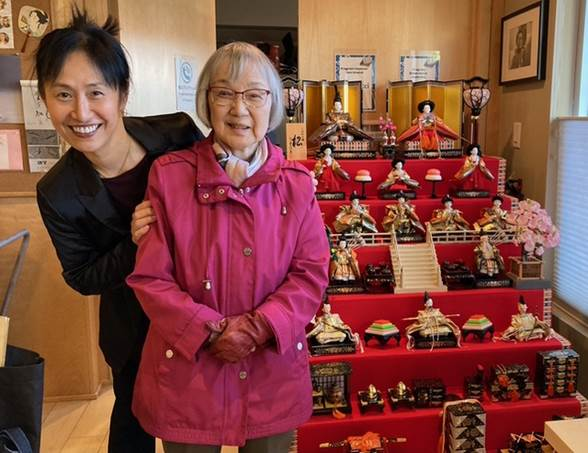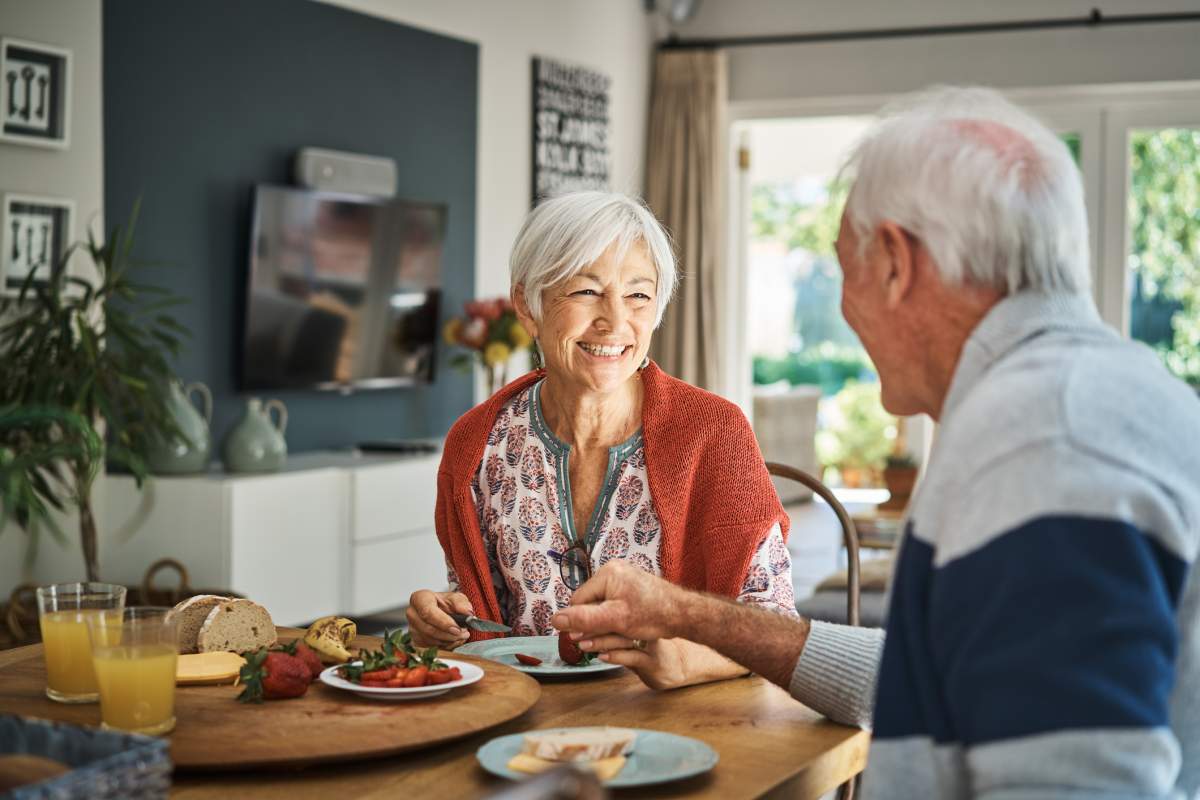Keiko Parker is 90 years old and lives alone in the Lower Mainland, but she’s not isolated.

Parker takes advantage of the many supports provided to seniors by United Way British Columbia’s Healthy Aging programs, allowing them to live vibrant, independent lives in their own homes. Programs like Healthy Aging and Better at Home are made possible through partnership with the BC government and through those who donate to United Way BC.
The active Vancouverite currently receives weekly, healthy Japanese meals, accesses transportation services, and takes part in outings as well as cultural and social gatherings through Tonari Gumi, an organization which provides programs and services to Japanese Canadians and is supported by United Way.
She says the assistance she receives is helpful because she is focused on translating classic Jane Austin’s novels into Japanese. The 90-year-old has already published five of Austin’s books in Japan and is working on the sixth and final one.
“I’m quite busy so it cuts my cooking time. I don’t enjoy my cooking, so that’s great for me.” Parker says she likes the convenience, but more than that, she appreciates the weekly chats she has with the volunteer who provides her meals. This “social meal” interaction and connection is exactly what makes this type of community-based seniors’ program successful.
Tonari Gumi is just one of many programs for seniors supported by United Way BC to help people age with dignity in their own homes, says Camille J. Hannah, Assistant Director, Healthy Aging, Community Impact & Investment.
She says as the population of older adults grows in the province, more services are needed to support not only physical health, but also mental, social and psychological wellbeing to ensure those over 65 continue to stay active and connected.
In collaboration with the Community-Based Seniors’ Services sector, United Way BC’s Healthy Aging Programs last year included seven programs and grants: Better at Home, Family & Friend Caregiver Supports, Social Prescribing, Therapeutic Activation Programs for Seniors (TAPS), Navigation and Peer Support, Digital Learning Program/Active Aging Plus, and Men’s Sheds. In 2023/24, over 36,000 older adults across the province were supported by 184 local programs.
This year and beyond, United Way BC is looking to enhance many of its current programs and to develop new ones.

Get breaking National news
For example, Better at Home, one of the largest and most established of these programs, is intended to “meet the non-medical needs of seniors living in their own homes and help them with simple day-to-day tasks,” she says.
Light housekeeping services are the most popular, with 30 per cent of all Better at Home services being minor home cleaning. However, United Way BC enhances the program beyond housekeeping. This means supporting consistent relationships with housekeepers and training them to notice subtle shifts in a senior’s behaviour or state of the home so that the person may be referred to other resources if needed.
Hannah says although Healthy Aging initiatives are typically for those 65 plus, they see a trend toward those 75 and up accessing their programs.
Looking toward the future, United Way BC is also placing a priority on people experiencing more vulnerabilities and higher, or complex, needs. This population could include those with low or modest incomes, people with low-to-moderate frailty, socially isolated groups or people with mobility barriers, disabilities, or a traditionally marginalized group.
United Way also focuses on the “social prescribing model” (a holistic approach to health care that brings social and medical needs together). This new model creates a network of community collaboratives across the province, with the goal of helping to strengthen partnerships within local areas.
For example, if a senior is diagnosed with diabetes, a doctor could prescribe them not only medicine but also to a community connector – a local person who would have access to non-health-based resources: a nutritional cooking class, social organizations, etc. This prioritizes the older person in what Hannah calls a “person-centred approach” that guides the organization’s decision-making.
“We are seeing the value and benefit of community-based seniors’ services working collaboratively with health partners – knowing that both of these bodies systems could be seeing essentially the same people.”
United Way BC’s Healthy Aging programs are based on academic, medical and scientific research on social isolation. A federal government study found that social isolation increases the risk of death for seniors more than other factors such as obesity or physical inactivity. This highlights the need for social engagement, says Hannah.
Programs such as social meals through TAPS, which Parker participates in, are not just about receiving healthy meals several times a week, but about the connections seniors can make with those who volunteer with the programs.
For example, Parker says she loves to chat about travel with the man who delivers her weekly meals.
“You develop a friendship with this person” she says.
Hannah adds, “We know that social isolation can be a huge detriment to the wellness of anyone, in particular seniors, as they age, and their social network may be declining or they are suffering some sort of loss of cognition, transportation, or a loved one, for example.” She says that trend was especially prevalent during COVID and beyond, and “we knew we needed to act on that.”
Since then, says Hannah, United Way BC has continued to “learn, adapt, and grow to put out new initiatives based on what we hear in the community.”
To learn more, please visit:
Healthy Aging Programs for Seniors | United Way BC
To donate, please visit:


